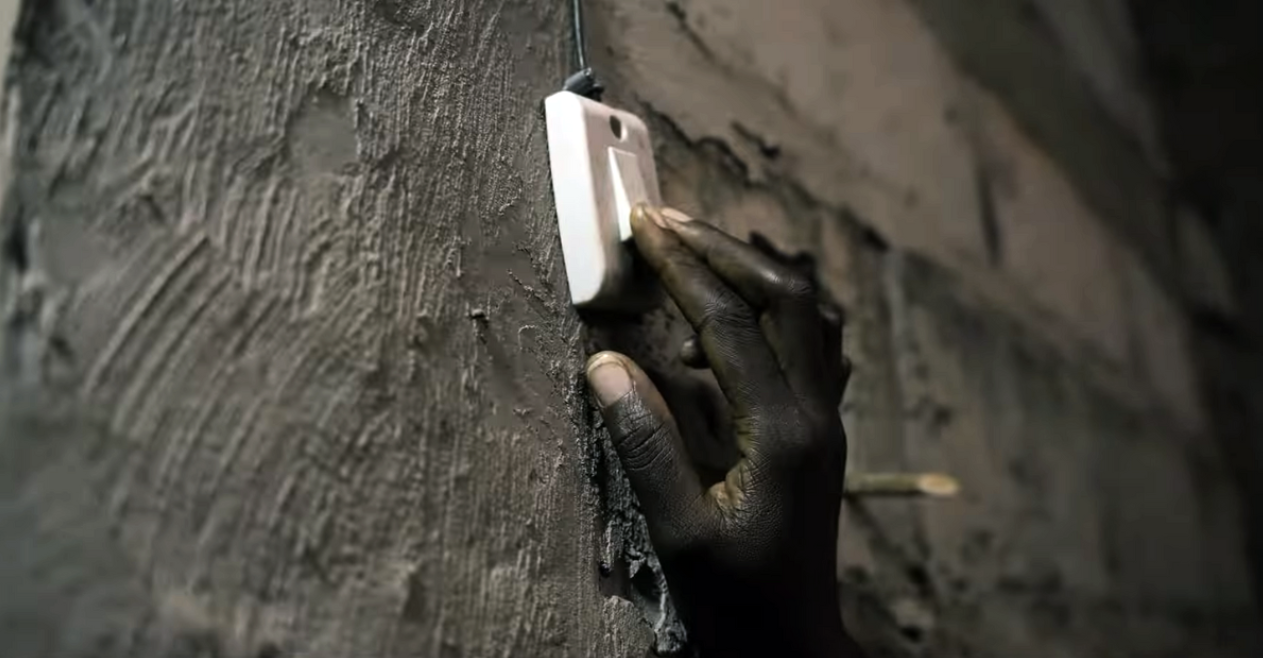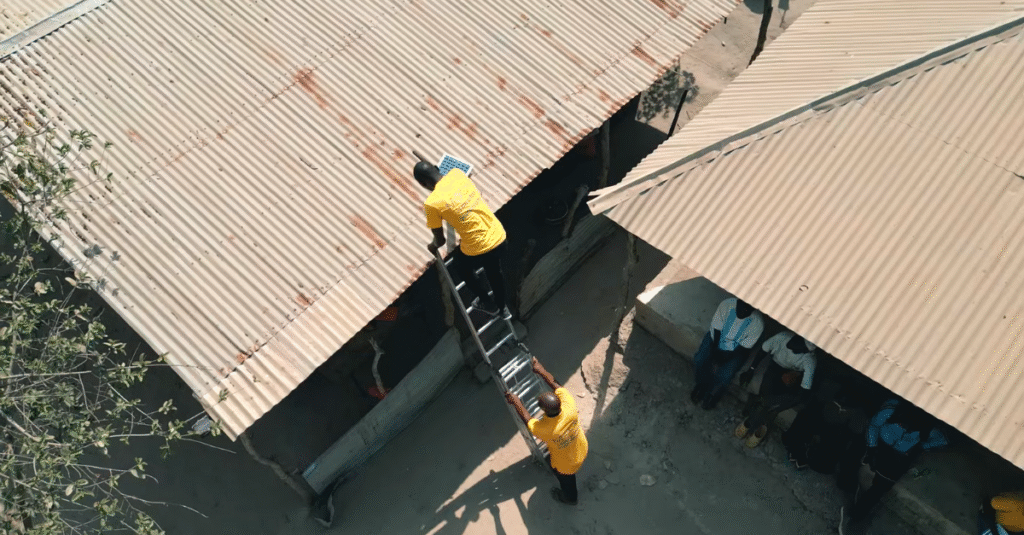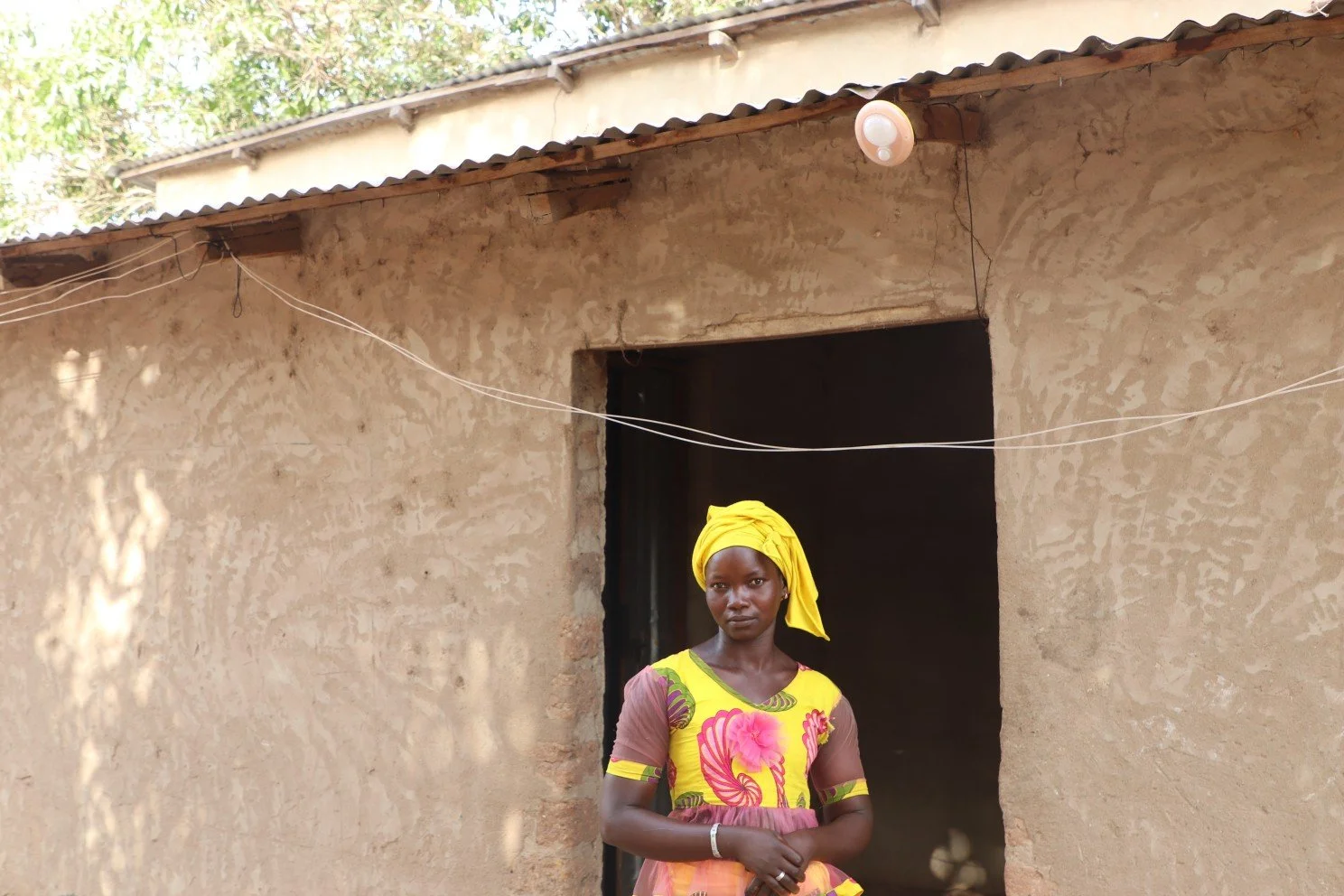A REAL Plan to Fast-Track Rural Pre-Grid Electrification.
Photo: Moon
The off-grid energy sector has made significant progress connecting households to first-time energy access. However, current models are struggling to reach the most remote households in sub-Saharan Africa, and where they do, questions remain over how to finance and maintain their energy access.
The Rural Energy Access Lab (REAL) aims to fast-track universal access to energy with a game-changing model. This model supports sustainable pre-grid electrification for rural households through large-scale deployment of solar home systems (SHS) as infrastructure.
Why the REAL model for sustained energy access is needed
Concentrated efforts to connect households to electricity have increased energy access rates significantly since 2000. But, we’re now seeing the limitations of existing off-grid energy distribution and electrification models.
Steady progress was knocked back for the first time in decades in 2022, with the IEA reporting the global number of people without access to electricity increasing, to 685 million. Moreover, GOGLA data reveals doubling down to scale up current models will still leave 277 million behind by 2030.
Many existing PAYGo Rent To Own companies have shifted their focus to a comparatively wealthier customer base and larger systems to ensure commercial viability. For the poorest households, energy access often remains out of reach due to unaffordable down payments, failed credit checks or simply living in regions or countries that are deemed not commercially viable by the industry. Even among those who qualify, many lack access to essential after-sales or repair services, and households who default on their payments often lose both their systems and access to electricity, as described in the latest 60 Decibels report Falling Behind: Defaulted Customers.
Similarly, mini-grids operate primarily in areas that ensure commercial returns, leaving the most vulnerable, who cannot afford connection fees, sustain regular payments, or simply live outside of such areas, without access to electricity. While mini-grids are an essential component of the continent’s off-grid electrification efforts, their high capital costs and long deployment timelines means that a complementary approach is necessary to address the urgent need for energy access.
These approaches will not provide for the poorest and most remote populations. Confronted with this reality, that SDG 7 will not be achieved by business as usual, it’s time to decisively change tack.
Photo: Moon
Applying structural planning to decentralised energy
Drawing on two decades of sector knowledge, REAL proposes a scalable and sustainable pre-grid electrification model focused on hard-to-reach households across Sub-Saharan Africa.
It leverages rapidly deployable Tier 1 SHS as foundational infrastructure, delivered through a prepaid Energy-as-a-Service (EaaS) model. Unlike traditional ownership models, the SHS remain the property of an SPV or of a local operator, who are accountable for ongoing maintenance and customer support.
This approach represents a structural shift for pre-grid rural electrification, and is built around three core pillars:
Affordability
REAL’s model removes the barrier of upfront costs through smart subsidies, eliminating down payments and significantly lowering monthly fees. This makes energy access possible for the poorest households.
Speed
REAL enables rapid, cost-efficient deployment to the poorest households by treating the roll-out of hundreds of thousands of SHS as an infrastructure project rather than selling SHS one by one as consumer goods. Without credit checks and through bulk procurement and bulk installation of standardized systems, rollout is faster, more efficient and more inclusive.
Sustainability
As a service-based model, REAL ensures long-term system performance and maintenance. Operators are incentivised to use durable, built-to-last products, reducing failures and minimising e-waste over time. After initial deployment, the model is designed to be financially viable without ongoing subsidies, and ensure that operators are cash flow positive from day one.
With these foundational principles, REAL aims to mobilise $1b in funding to connect 50 million people in 10 countries by 2030.
With the right support and partners, REAL’s plan is scalable, inclusive and sustainable to ensure no one is left behind.
Our vision in action: REAL’s pilots underway
Since our launch at the Global Off-Grid Solar Forum and Expo in Nairobi last October, REAL has been working on pilot projects and building momentum in Sierra Leone, Senegal and Malawi, with our in-country partners and the financial support of the DOEN Foundation, Good Energies Foundation and British International Investment (BII).
In Sierra Leone, REAL partnered with Easy Solar and launched a government-backed EaaS program called “Lite Salone”, in partnership with Irish Aid, Iceland and the EU delegation through GIZ-EndEv. The project aims to connect all 30,000 rural households of a Northern district by next year. REAL, the Government and partners are working on a nationwide scale-up and the EaaS model will be included in the country’s M300 compact. Additionally, REAL is in early talks with established mini-grid operators in Sierra Leone to build trust and effectively integrate EaaS into their plans.
In Malawi, REAL is working with SunnyMoney and is approaching universal access in the Traditional Authority of Kasakula (6,000 of 8,800 households equipped). They have already secured small-scale funding through the NNNF World Bank Fund, a precursor to ASCENT funding, that was tailored to fit the EaaS model. Government officials have expressed their interest in scaling the model tenfold across an entire district.
In Senegal, REAL collaborates with Moon, which has successfully completed 4,500 sustainable energy connections in Casamance—reaching universal access in approximately 50 villages. They are now aiming to scale up to 10,000 connections. Moon has also launched Mooka, a joint venture with Anka, a leading mini-grid operator in Madagascar, to practically demonstrate the synergy between Solar Home Systems as pre-grid infrastructure and mini-grids within electrification concession areas. This model offers an additional pathway for REAL partners to accelerate progress toward universal energy access.
Now, we’re preparing to execute the next stages of our plan, backed by new funding from the Nordic Development Fund.
Building a REAL movement for 100% energy access
REAL is an independent, not-for-profit initiative and we actively seek collaboration to further our work, developing and scaling pre-grid infrastructure projects that leave no one behind.
In the coming months, REAL will set-up a $15m catalytic fund that will finance the launch of sustainable pre-grid electrification programs in 10 countries, and support the mobilization of another $15m of subsidies across these countries from local actors.
In parallel, REAL aims to develop the enabling environment necessary for these projects to achieve success at scale, through a number of levers:
Developing templates, frameworks and technical standards that help consistently replicate the REAL model.
Coordinating the development of a new “built-to-last” standard for products used in sustainable pre-grid electrification programs.
Catalysing a collective mindset shift that accelerates change in how governments and donors view electrification – positioning the REAL model as a credible, cost-effective complement to grid or mini-grid extension for rural areas.
Creating an ecosystem through the aggregation of knowledge, setting reference points, and avoiding fragmented or duplicative approaches.
To kickstart this effort, REAL is opening a Call for Expressions of Interest (EOIs) for:
Rural Electrification Agencies and private operators interested in participating in subsidized Energy-as-a-Service pilots in new geographies
Manufacturers interested in participating in the development of new standard for “built-to-last” products
Donors and investors interested in financing REAL’s upcoming catalytic Fund
REAL will be sharing more about these initiatives and how to get involved around the GOGLA AGM in Nairobi, June 10th & 11th.
Want to hear more from REAL?
Follow us on LinkedIn for regular updates, insights, and community and sector events, contact us info@ruralenergyaccesslab.org —or reach out to our founding team on LinkedIn if you’d like to collaborate or learn more.



